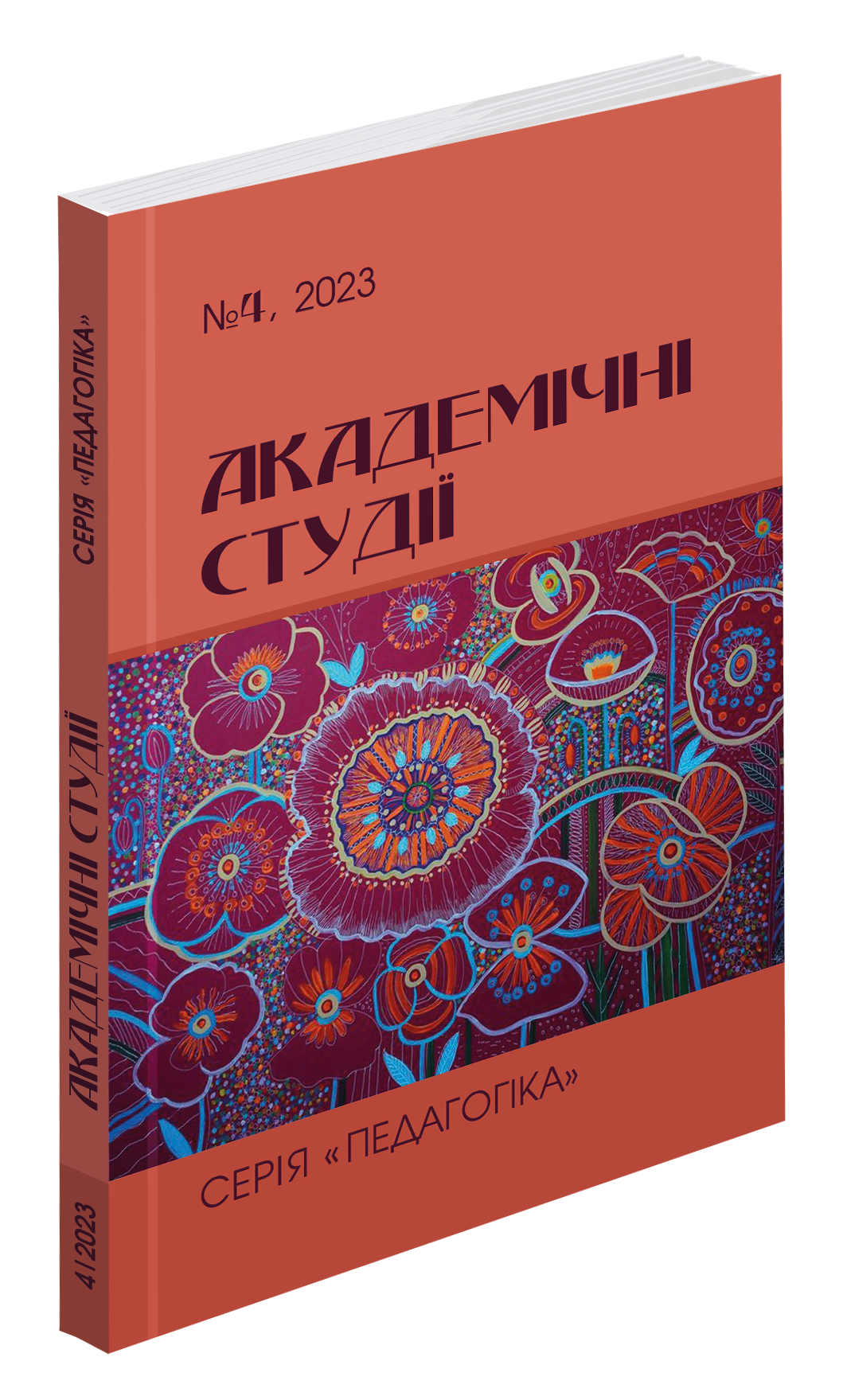Abstract
Academic engagement and support of vulnerable categories of learners is a crucial thematic issue within the EU and globally. In this respect, the research is focused on searching for suitable solutions for gaps in doctoral education capacity strengthening at institutional and national levels in Ukraine, primarily due to underestimating its societal dimensions, and on synchronizing the Ukrainian practices with European policies and standards, including helpful initiatives in integrating resilience and sustainability into its academic, research and engagement activities; creating an inclusive and welcoming culture within academia that encourages respect, support, and mentorship. The developed educational courses aim to facilitate a cross-sectoral dialogue on solutions for the challenges faced by Ukrainian academia in reforming the doctoral education sector, within the framework of a sustainable, cohesive, and peaceful Europe. The implementation of the proposed educational courses aims to achieve the following short-term effects: to ensure Ukrainian PhD students’ belonging and research engagement, return to stability, and help to alleviate psychological anxiety; to advance doctoral students’ research competencies in line with ethical and methodological standards; to minimize the risks of doctoral student attrition; to activate faculty and peer mentorship and professional networking within the academia regarding doctoral students at risk diversity; to diversify the institutional strategies of doctoral students’ academic and researcher identity development in war and post-war circumstances. This will provide a significant context for advancing a new type of academic culture in doctoral education within Ukrainian academia – a culture of university social responsibility that prioritizes human values and addresses the real needs of Ukrainian researchers while providing early-career researcher-friendly support, both academic and professional.
References
Cameron, K. (2008). A process for changing organizational culture. In T. G. Cummings (Ed.), Handbook of organizational
development (pp. 429–445). Sage Publishing.
EUA – European University Association, 2022. Inspireurope Recommendations Expanding Opportunities in
Europe for Researchers at Risk. Brussels: Inspireurope – Initiative to Support, Promote and Integrate Researchers at Risk
in Europe.
EUA briefing, April 2022. Impact of the Russian Federation’s invasion of Ukraine on the Ukrainian higher education
sector. Brussels.
European Commission / EACEA / Eurydice, 2022. Supporting refugee learners from Ukraine in higher education
in Europe. Eurydice report. Luxembourg: Publications Office of the European Union.
Guerin, C., & Green, I. (2015). They’re the bosses’: Feedback in team supervision. Journal of Further and Higher
Education, 39(3), 320–335. https://doi.org/10.1080/0309877X.2013.831039
Halse, C. (2011). ‘Becoming a supervisor’: The impact of doctoral supervision on supervisors’ learning. Studies in
Higher Education, 36(5), 550–579. https://doi.org/10.1080/03075079.2011. 594593
Nerad, M. et al (eds), (2022). Towards a Global Core Value System in Doctoral Education. London: UCL Press.
https://doi.org/10.14324/111.9781800080188
Szadkowski, K. (2014). The Long Shadow of Doctoral Candidate Status. Case Study – Poland, Social Work &
Society. Volume 12, Issue 2, 1–17.
